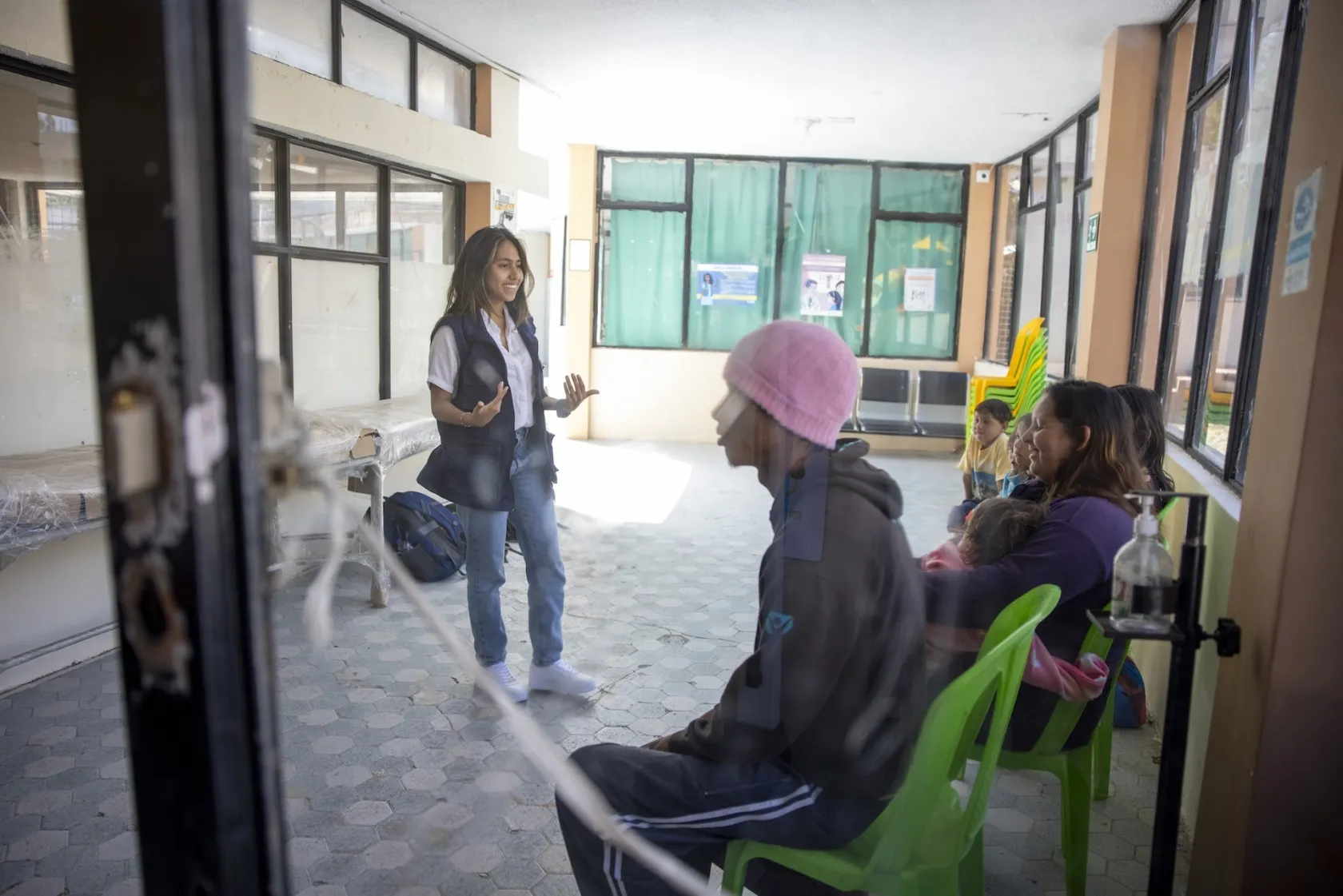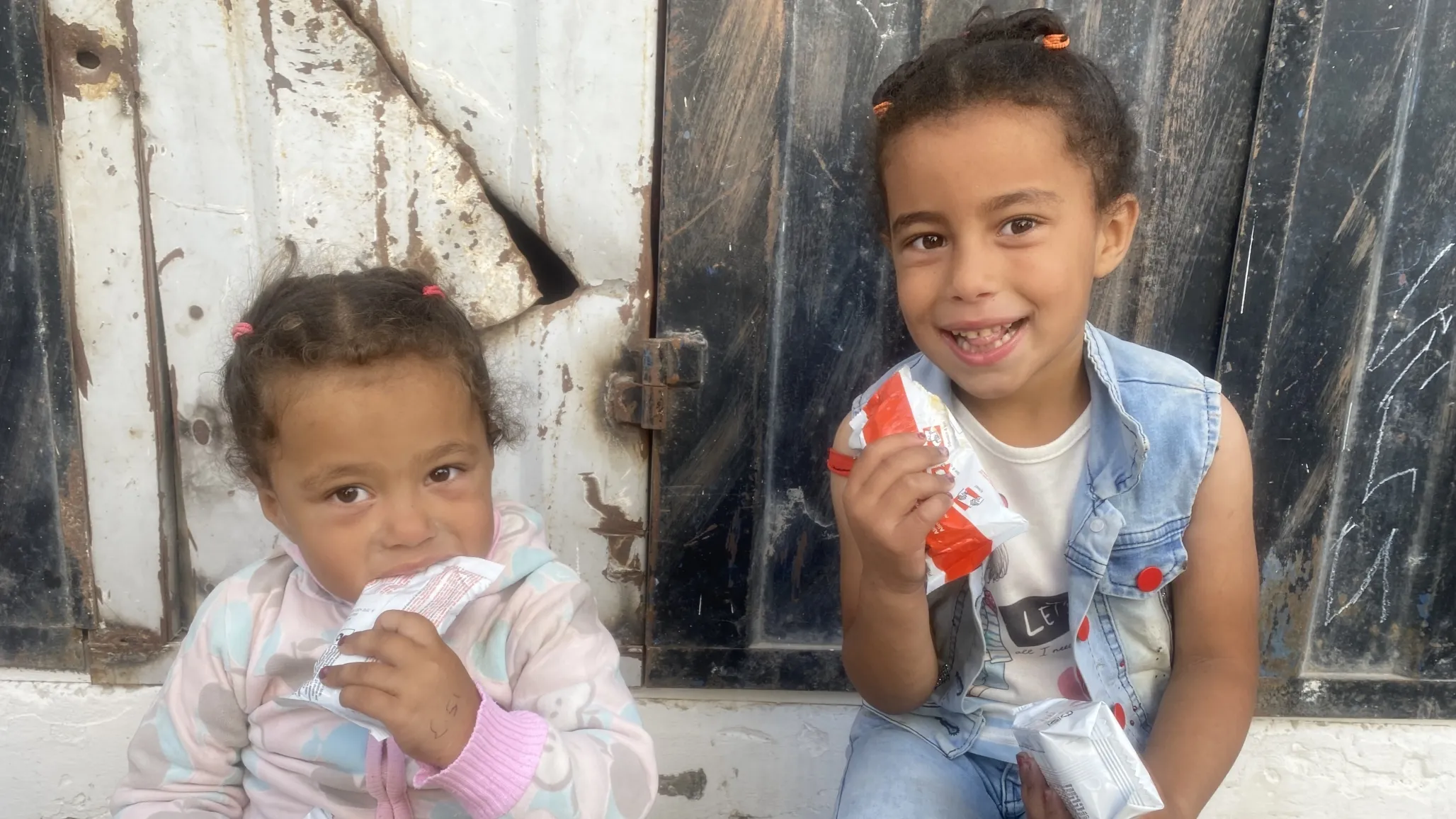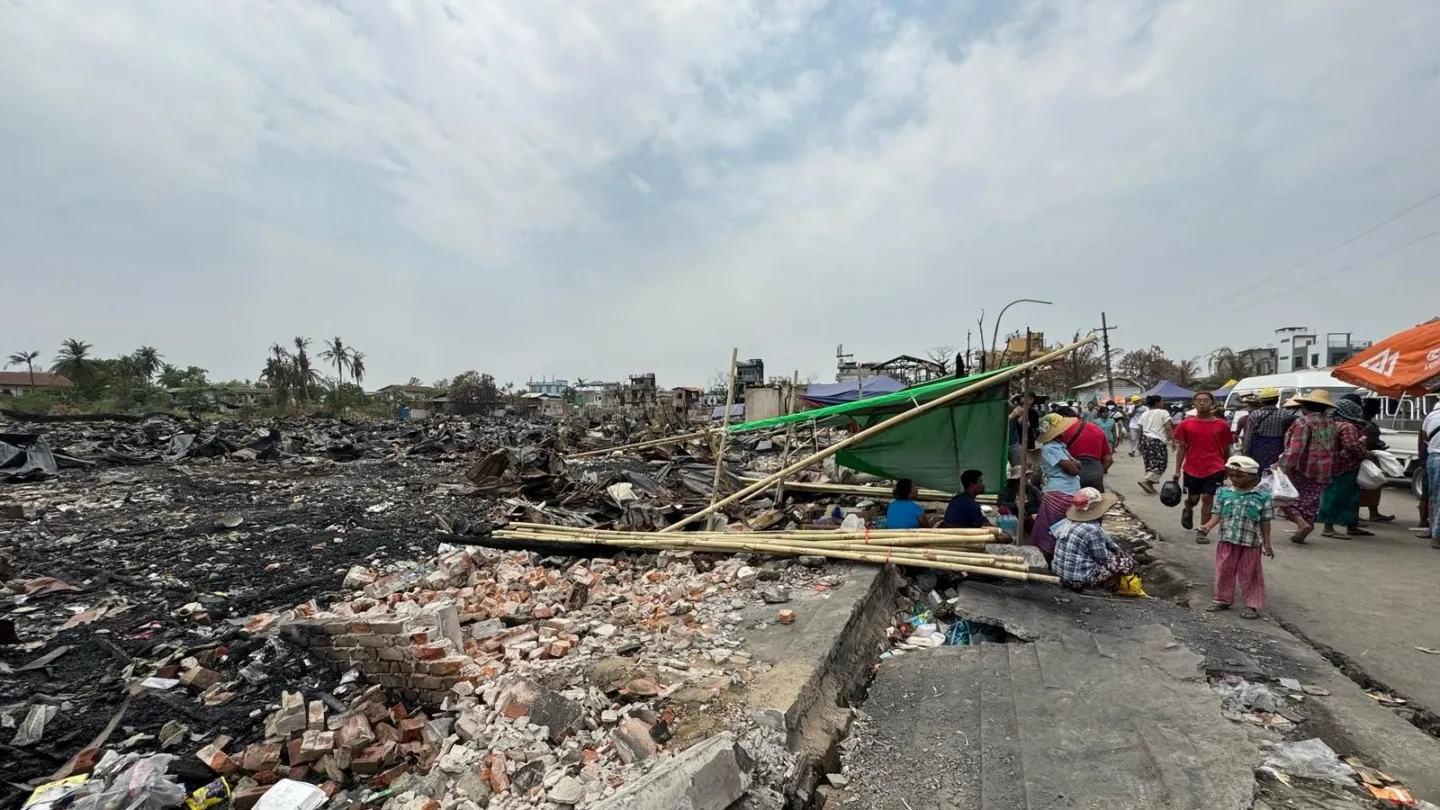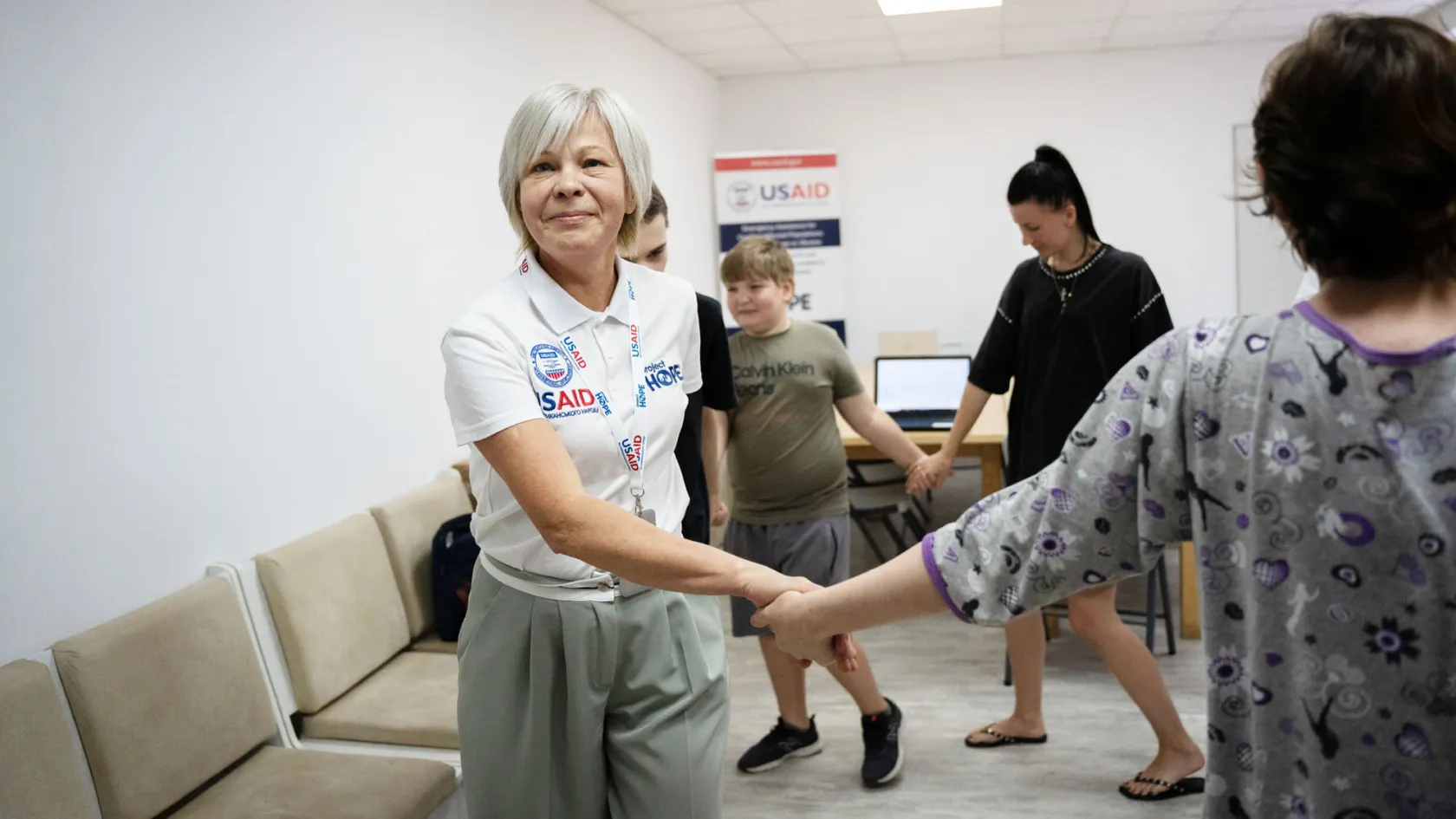On the Ground: A Call for Humanity in Times of Crisis
Read a first-hand account from Project HOPE’s Chief Development & Communications Officer on the ground in Poland about the importance of humanity for those facing displacement.

The 2024 World Migration Report estimates that there are 281 million international migrants worldwide, which is 3.6% of the global population.
Earlier this year I visited Poland, where I witnessed firsthand the struggles of Ukrainian mothers and children who have been uprooted from their homes by Russia’s full-scale invasion. Project HOPE’s work, funded by the Elsa and Peter Soderberg Charitable Foundation, provides support to these families and underscores the urgent need to address the emotional trauma and loss experienced by millions worldwide who are forced to flee their homes.
During our time in Poland, the Soderbergs and I had the opportunity to meet with children living in temporary shelters. While these shelters provide a safe haven, they are far from a permanent home. Many of these children lack consistent access to schooling and are uncertain about what the future holds for them. Despite efforts by the Polish government to enforce education for Ukrainian children, logistical and financial constraints pose significant challenges. Mothers, meanwhile, grapple with the uncertainty of their husbands’ safety and whereabouts back in Ukraine, adding another layer of stress to their already burdened lives.
One poignant moment during my visit was observing an art therapy class at the shelter. Utilizing a specific procedure designed to access trauma, the mothers engaged in coloring exercises. It was remarkable to witness how such a simple activity, coloring within the lines, could help release trapped emotions and provide a form of catharsis for these women who have endured so much.

The struggles faced by these families in Poland are echoed in countless communities grappling with mass migration around the world. As we confront the global challenges of displacement, it is imperative that we prioritize the mental health and well-being of those affected. This means not only providing access to essential services like education and health care, but also recognizing the profound psychological impact of forced migration and investing in trauma-informed care and support services.
Migration, whether due to conflict, economic instability, climate change, or lack of opportunity, exacts a heavy toll on individuals and communities. The stories of families torn apart, livelihoods lost, and dreams shattered are heartbreaking reminders of the harsh realities faced by those caught in the crosscurrents of global upheaval.
Forced migration disrupts every aspect of life, from basic needs like food and shelter to the fundamental human right to mental well-being. The loss of home, community, and sense of belonging can lead to profound feelings of grief, anxiety, and depression. Children, in particular, are vulnerable to the long-term psychological effects of displacement, with studies showing increased rates of post-traumatic stress disorder (PTSD) and other mental health disorders among refugee populations.
Moreover, the lack of access to essential services exacerbates the already precarious situation faced by migrants. Many find themselves in overcrowded refugee camps or makeshift settlements, with limited access to education, health care, and psychosocial support. The psychological scars of displacement are further compounded by the daily struggle for survival in unfamiliar and often hostile environments.
As we confront the global challenges of mass migration, it is imperative that we approach this crisis with humanity and compassion. Every person forced to leave their home or homeland has a story to tell, a life disrupted by forces beyond their control. It is not a choice but a necessity for survival.

We must also recognize that the current wave of migration is only the beginning. Climate change, conflict, and economic instability will continue to drive millions from their homes in the years to come. In our own country, families are increasingly seeking refuge from violence and instability, seeking a safer environment for their children to grow and thrive.
Addressing the mental health needs of migrants must be a priority in any response to this crisis. This means providing access to culturally sensitive and trauma-informed care, investing in community-based support services, and fostering inclusive societies where refugees and migrants are welcomed and valued.
In the end, every person I’ve spoken to, whether in Poland, at home, or elsewhere, has expressed the same sentiment: they did not want to leave their home or homeland. It was not their choice but a desperate bid for survival. As we bear witness to the human cost of migration, let us reaffirm our commitment to empathy, solidarity, and justice for all those who have been forced to flee in search of a better life.
Cinira Baldi is Chief Development and Communications Officer at Project HOPE.



